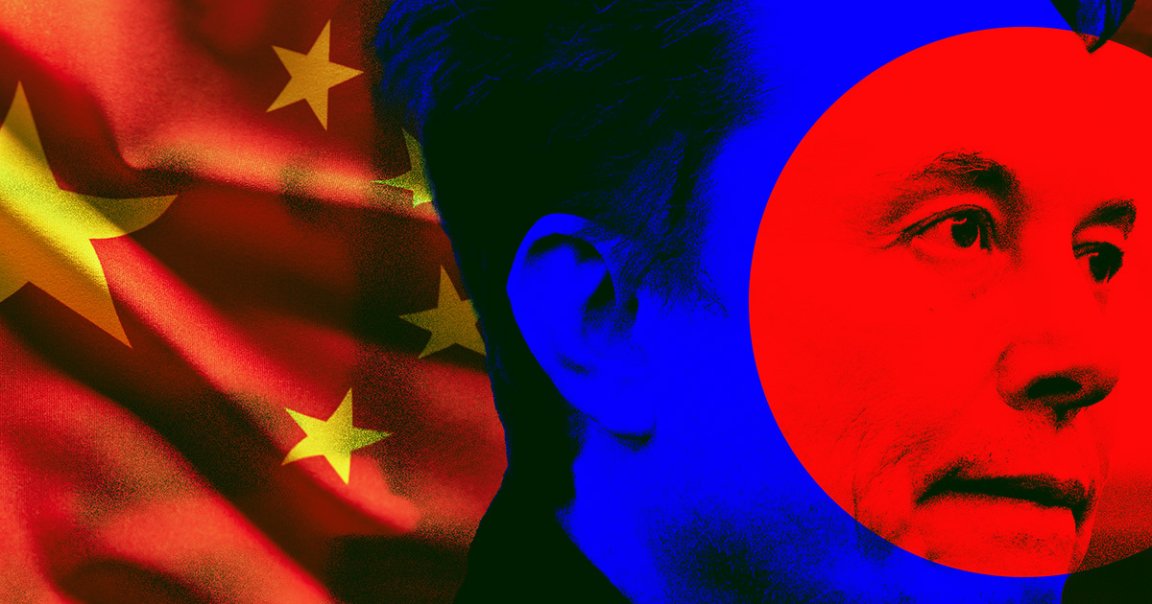
As Elon Musk leans the future of Tesla on his long-deferred dream of fully autonomous vehicles, its rollout of Full Self-Driving (FSD) is faltering in China, the automaker’s second-largest market.
In September of last year, Tesla announced that FSD was expected to deploy to the company’s EVs in China and Europe in 2025, pending regulatory approval.
But that plan hit a snag in China, which is now expected to delay the debut, according to sources tapped by the Financial Times, who were told by Chinese regulators that the timeline for FSD approval was “indefinite,” after previously indicating approval by this spring.
It’s another illustration of how Musk’s outrageous political activities put his companies at risk. As his chief ally Donald Trump teases extreme tariffs on geopolitical foes and allies alike, the FT‘s sources claim that Beijing regulators are using FSD as leverage in a mounting trade war.
That’s not the only front on which Musk’s drama is causing trouble for the beleaguered EV maker, which has seen sales plummet worldwide as Musk has hacked his way through the federal government.
China’s EV market is among the fastest growing in the world, with upwards of 60 percent of global EV registrations coming from the country. Chinese EV manufacturers are likewise dominating the global market, despite strong tariffs in the US and European Union — by October of 2024, it was reported that China’s global share of the EV and hybrid vehicle market had exceeded 75 percent.
And while the approval of FSD in China may take longer than expected, investors and critics are wondering if Musk can hold up his end of the deal, expressing skepticism around the mogul’s timeline for delivering a genuinely autonomous version of the tech.
During an investor event last year, Musk rolled out his prototype FSD robotaxi concept, called Cybercab, to the groans of shareholders hoping for details about the application of FSD software, which seemed to be overlooked in favor of another pie-in-the-sky concept car.
Following the showing, Tesla’s stocks plummeted by 9 percent in a single day, reflecting growing impatience at Musk’s extravagant promises and lack of convincing timelines.
But the market’s hesitation did little to sway Musk’s overcommitment to self-driving cars. Doubling down on the vision, Musk told investors in a January earnings call that “Teslas will be in the wild, with no one in them, in June in Austin. This is not some far-off mythical situation. It’s literally five, six months away.”
For those investors, the promise of FSD is turning into a long chain of broken promises, spanning as far back as 2016, when Musk claimed every Tesla already came with the necessary hardware to drive itself, asserting there would be a “demonstration drive of full autonomy from Los Angeles to new York by the end of the year.”
Needless to say, that demo drive never happened, with the software stuck in a beta in which drivers need to carefully oversee it at all times. Illustrating the perils of that model, just days after Musk’s January earnings call, a negligent driver utilizing supervised FSD in Nevada crashed his Cybertruck into a pole when the three-ton stainless steel truck failed to register its lane was merging.
If Tesla’s investors weren’t skeptical before, they certainly are now, as Tesla rank-and-file and management alike have begun wondering aloud if it wouldn’t be better for Musk to resign.
And in any case, the clock is ticking; Chinese automakers are rapidly starting to offer home-grown autonomous driving capabilities.
More on Tesla: Cybertruck Driver Was Blasted on Booze and Cocaine in Deadly Crash